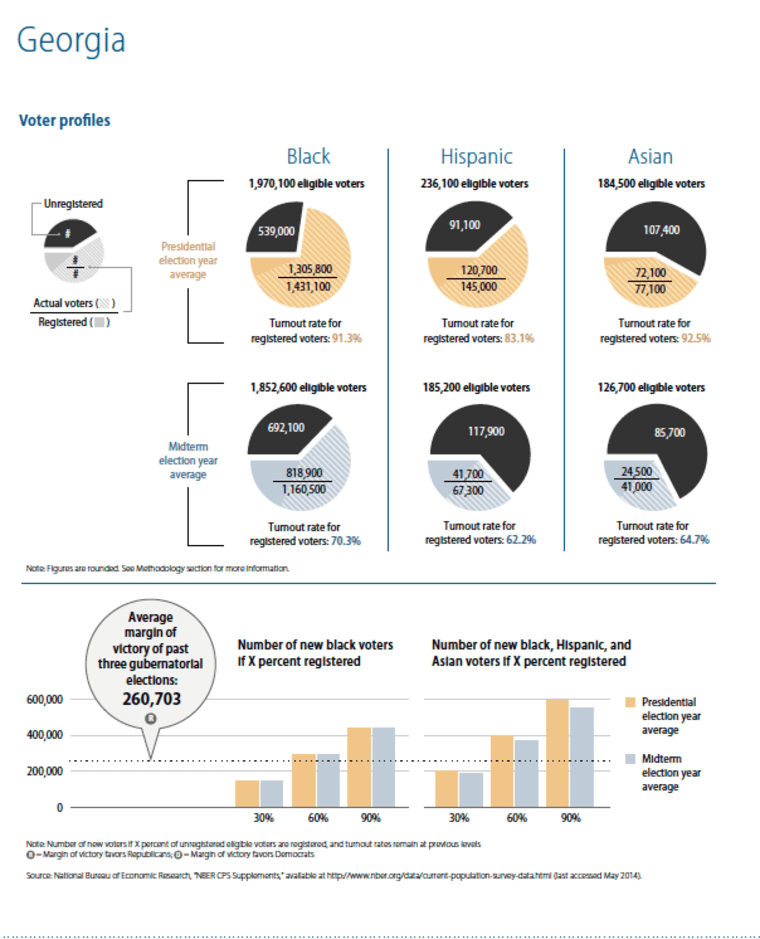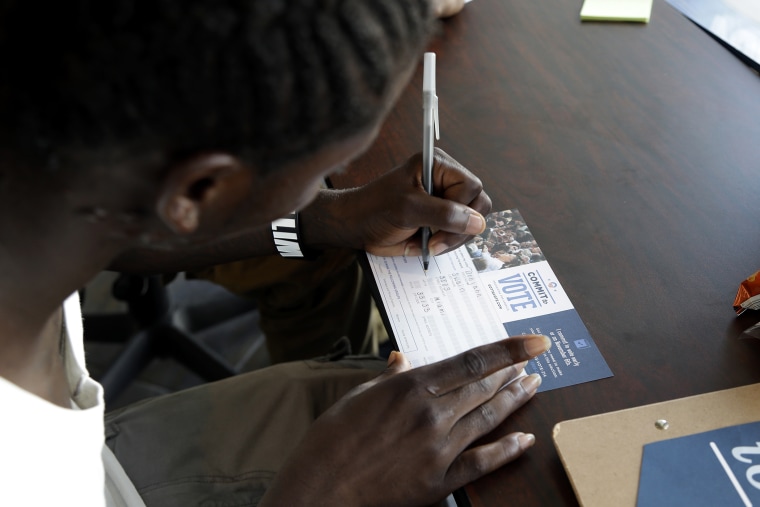We have the antidote to voter suppression. In fact, we’ve always had it.
We have known what it is for at least half a century. Fifty years ago this month, Freedom Summer activists risked life and limb to register voters in Mississippi and spread the gospel of democracy across the southern United States. They confirmed the notion that the best way to overcome massive voter suppression is through a massive wave of voter registration. As we prepare for the midterm election of 2014 – and look toward the presidential election of 2016 – we need to remember their lesson.
Our new report from the Southern Elections Foundation and the Center for American Progress, “True South: Unleashing Democracy in the Black Belt 50 Years After Freedom Summer,” reveals that large investments in voter registration can unleash democracy in states that have historically resisted it.
"...large investments in voter registration can unleash democracy in states that have historically resisted it."'
As just one example, consider Georgia. The state’s two most recent governors, Sonny Perdue and Nathan Deal, won their races with scant support from communities of color. Once in office, they governed accordingly. Governor Perdue introduced one of the nation’s first strict photo voter ID laws, while Governor Deal has turned down Medicaid expansion and signed one of the strictest anti-immigrant laws in the country.
On the other hand, the average margin of victory in Georgia over the last three elections was minimal: just over 260,000 votes. So what would it take to give voters of color in Georgia a voice?

Our report found that a massive wave of voter registration could shake up the political dynamic. If organizers were to register 60% of unregistered black voters in the state – and those voters then turned out at previous levels – it would create a corps of 290,000 new black voters. That is 30,000 more than the average margin of victory for a governor in the state. Moreover, a voter drive that registered 60% of unregistered black, Hispanic and Asian voters would create 369,000 new voters of color, or 109,000 more than the margin of victory.
“True South” found that most of the 13 “Black Belt” states would be similary disrupted by a massive wave of voter registration. In South Carolina, registering 40% of unregistered voters of color would be enough to upset the balance of power. In North Carolina, registering 10% would do the trick.
All in all, the report found that registering 60 percent of unregistered black, Hispanic, and Asian voters would upset the balance of power in Florida, Georgia, Maryland, North Carolina, South Carolina, Tennessee, and Texas in either a presidential or midterm election year. In a presidential election year, Alabama would be added to the list.
The conventional wisdom in the South is that despite gains on the local level, candidates who represent the views of people of color cannot win statewide office. But this conventional wisdom ignores the numbers. In 2012 there were 3.7 million unregistered black voters, 3.2 million unregistered Hispanics and 750,000 unregistered Asians in the Black Belt.
The Freedom Summer activists understood that politics is at least in part a numbers game. We need to realize that communities of color have the potential to shift the balance of power in the U.S South through sheer force of numbers. Voter registration can make the future come faster in the Black Belt, and 50 years after Freedom Summer, it is time for another bold leap forward.
